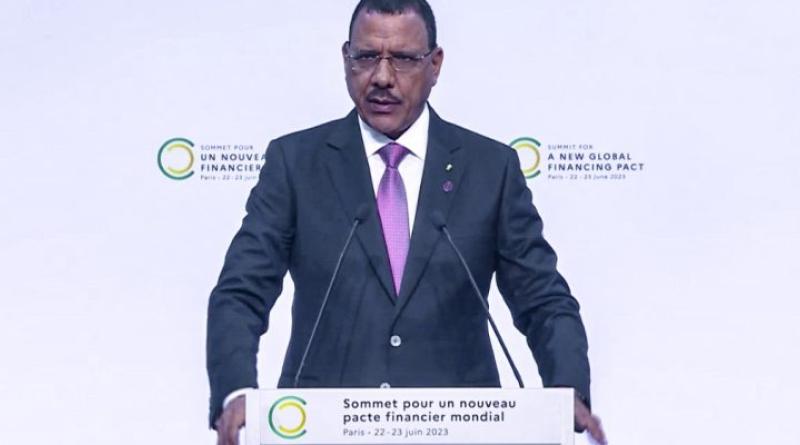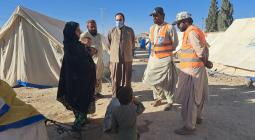Drought, food crisis… Time for action, says Mohamed Bazoum

The President of the Republic of Niger, Mohammed Bazoum, is one of the heads of state and government attending the Summit for a New Global Financial Deal in Paris on Thursday 22 June 2023. One of the highlights of the first day was the remarkable and much-applauded speech by Ugandan environmental campaigner Vanessa Nakate.
The Summit for a New Global Financial Pact, which opened in Paris on 22 June 2023, is taking place against a backdrop of three crises shaking the world. The repercussions of the Covid-19 global pandemic, the war in Ukraine and the climate crisis. For Mohamed Bazoum, President of the Republic of Niger, “It is time to take action because we have reached a breaking point in terms of climate change”.
Niger is one of the Sahel countries most affected by climate change, which is manifesting itself in an upsurge in drought. This is leading to other crises, notably conflicts between market gardeners and livestock breeders in search of pasture. This phenomenon also affects the Horn of Africa. That’s why Ugandan environmental activist Vanessa Nakate has stressed the urgent need for action to help this part of the African continent, which is in the throes of a food crisis. In fact, according to the International Federation of Red Cross and Red Crescent Societies (IFRC), at least 22 million people are on the verge of running out of food after four consecutive years of drought.
Stop funding fossil fuels!
Faced with this crisis, which is partly linked to climate change, Vanessa Nakate, who called for a minute’s silence in memory of the victims of the climate crisis, called for an end to funding for oil and gas. “Any spending on fossil fuels is madness. The people of the world are watching you”, said the environmental activist, before denouncing the increasing number of oil fields in the Congo Basin.
Read also- Carlos Lopes: “We need to reform the international financial architecture”
But to make a success of the transition to greener growth, French President Emmanuel Macron stressed the need to agree on a concrete action plan for a paradigm shift in development financing. As part of this process, “between 300 and 600 billion dollars must be mobilized by the private sector to tackle the world’s climate emergency”, according to Amar Bhattacharya. According to this researcher at the Centre for Sustainable Development, the private sector should act in support of the Bretton Woods institutions, which the Prime Minister of Barbados, Mia Mottley, has called on to “transform” their development financing strategy.
Increasing concessional financing
Because “when these development finance institutions were created, most of our countries did not exist”, Mia Mottley insisted. Returning to the history of the Betton Woods institutions, Kristalina Georgieva, Managing Director of the International Monetary Fund (IMF), recalled that they were created to promote peace and development. But today, new mechanisms are needed to respond more effectively to the new shocks that are holding back development in the countries of the South.
The President of Niger, Mohammed Bazoum, proposed increasing the Special Drawing Rights (SDRs) of African countries, some of which are already in default. This should also be accompanied by other initiatives from private finance companies and philanthropists. This convergence of solutions should also help to reduce extreme poverty. For, as researcher Amar Bhattacharya pointed out, “there is no incompatibility between reducing poverty and combating climate change”.






